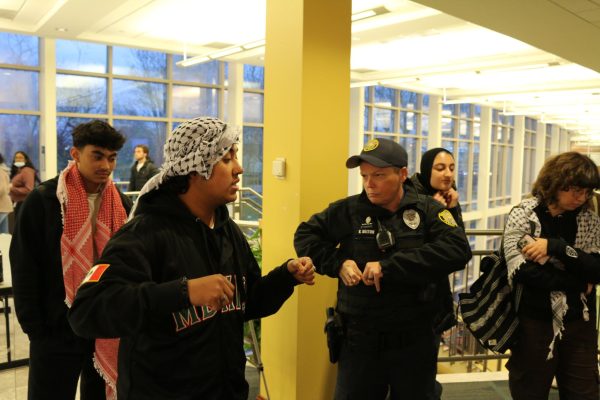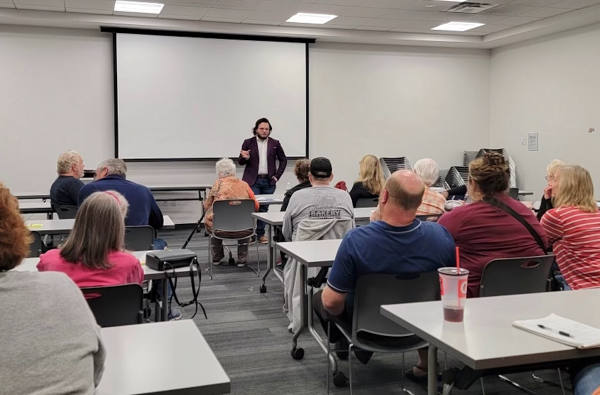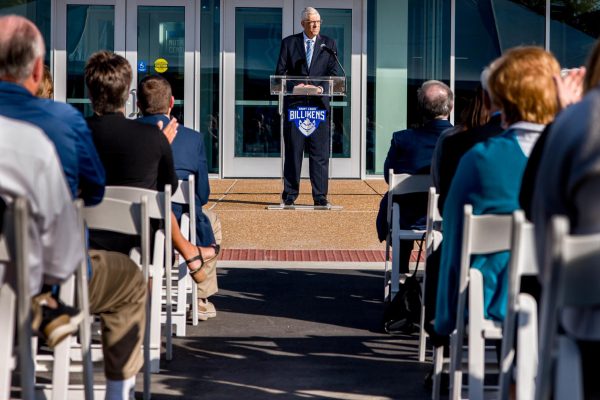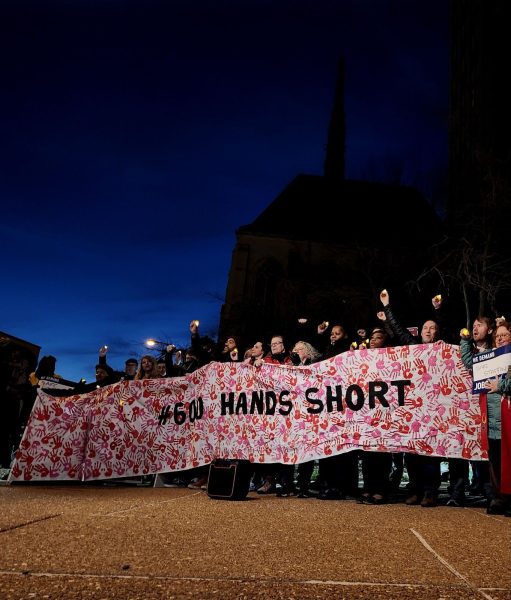AI Paving the Way Forward
Advances in AI at Saint Louis University
The average smartphone nowadays has the computing power to predict everything from the best route to work to the next words of a conversation. This is made possible not by mind reading, but artificial intelligence (AI).
While participating in the Language Prediction contest sponsored by the newly formed AI@SLU group, Carli Wendricks, a junior studying health information management and Spanish, said, “What humans are doing now, robots could be doing later. They always say with my major that the job you’re going to have may not exist right now. I think it is a strong possibility that the job I am going to have in the future, AI could be paving the path for it now.”
Over the month of September, participants of this contest are challenged to make predictions of the characters that form one sentence which has been translated into five languages, including Afrikaans, Chichewa, English, Irish Gaelic and Spanish. Exposing faculty and students to AI applications like predictive text illustrates the valuable insights AI can bring to important, yet seemingly unrelated, domains like language.
“The connection between AI and language has always existed. If you look at data science in particular, language processing is huge. Google is built almost 100 percent on language processing, at least in its beginning,” said Darrin Speegle, director of SLU’s data science program.
Modern technologies like Siri employ natural language processing to understand a user’s command. Other practical applications of AI encompass climate forecasting, agriculture and security.
He added, “Whether you’re aware of it or not, it [AI] is absolutely everywhere. It is used for both positives and negatives,” Speegle said.
Michael Goldwasser, Ph.D., chair of the Department of Computer Science in the College of Arts and Sciences, said, “One of the issues is that if you build systems based on data, and your data is biased, then you have just baked bias into the system.” He continued, “The broader mission of SLU brings another thing to the table, which is we’re not naive to the fact that it’s important to consider how [AI] gets used and what are the impacts as well. That is something we, as a department, are interested in, but that lets us…bring in expertise in ethics, law, policy, and to have a broader discussion along those themes as well.”
Members of AI@SLU span several schools across SLU’s campus including business, engineering and medicine. The group began their efforts this fall with their Language Prediction contest, which garnered university-wide interest. Nearly 50 participants have signed up for the chance to put their linguistic skills to the test, with the potential to win a $100 cash prize.
AI@SLU sprung out of efforts in early 2019 to unite SLU faculty and researchers with an interest in AI. Their original proposals were for Artificial Intelligence at Saint Louis University and Smart Echocardiography. These were eventually combined into AI@SLU, which was recognized as a 2019 Big Idea Winner and recipient of a $30,000 planning grant from SLU’s Research Growth Committee. AI@SLU’s interdisciplinary approach has allowed for sharing of ideas, resources and expertise in multiple subjects on knowledge related to AI technology.
“Whether you’re trying to tackle climate change, social justice, or medicine, you can be more effective when you have a larger set of expertise and in some cases, people who will look at things from a different angle. If you can find effective ways to do that, I think, there is a great advantage. Some of the challenges are that everybody gets focused on what’s right in front of them, the way that they are used to. We need to find ways to bridge the gap, find partnerships, and help people expand,” said Goldwasser.
The group is still planning more of their events for the year and figuring out the best way to get students interested and involved in their mission. They hope to do monthly contests that feature different areas or domains in which AI can be applied.
The group also has an upcoming seminar series led by Sorelle Frieler of Haverford College, that will feature a discussion about algorithmic fairness on Monday, Oct. 12.
The current leader of the contest is Clayton Strauch, a junior at SLU studying computer and data science.
“Our phones and computers have continually built up more and more AI and machine learning into just regular tasks and those keep getting better and better because our world is accumulating more and more data. That is why you’re seeing such a huge rise in the fields of data science and AI. I feel like almost any aspect of life you can think of, AI is going to insert itself into that more and more.”
“I feel like especially right now AI is such a big buzzword, in every domain you’re seeing someone implement AI into something. It is definitely something that is going to be incorporated more and more into every little thing,” Strauch said.
Your donation will support the student journalists of Saint Louis University. Your contribution will help us cover our annual website hosting costs.








